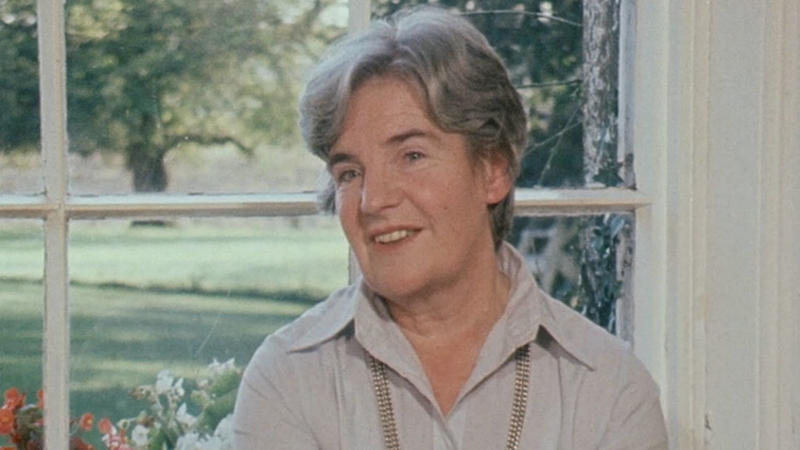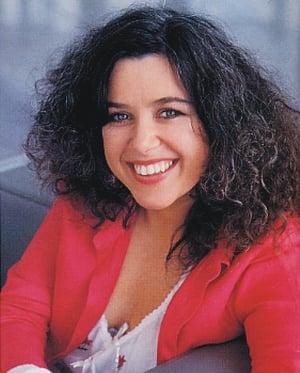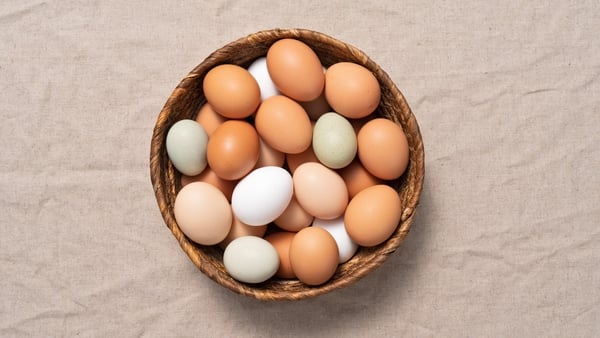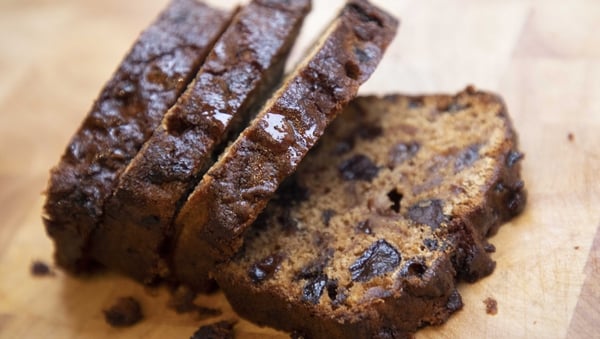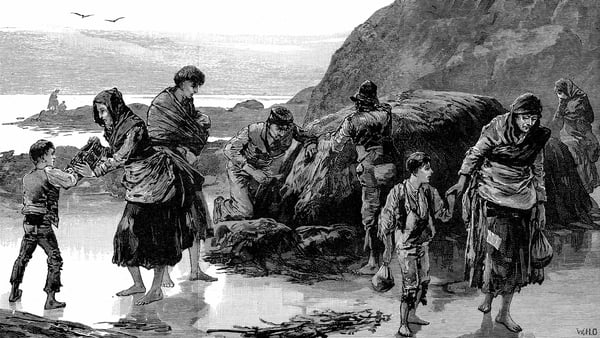Analysis: her highlighting of quality Irish produce and ingredients in the Yeats Room restaurant made her Ireland's leading food activist
It can be argued that the story detailed here holds many elements of an origin story. The format and structure of these stories routinely see the movement of a central and heroic character through stages of development from struggle to growth and from triumph to transformation.
The central character serves as a model to admire and emulate. Their voice is distinctive. They are often counter-cultural, and eventually their core character traits, voice and outstanding actions will blend to form a template or guide that helps us understand aspects of the world and the greater cosmos. Above all, the character is relatable, and we can use their movement in time and space to make sense of who we are and to locate and connect ourselves to greater universal developments.
We need your consent to load this rte-player contentWe use rte-player to manage extra content that can set cookies on your device and collect data about your activity. Please review their details and accept them to load the content.Manage Preferences
From RTÉ Archives, Myrtle Allen talks about opening a restaurant in her home to David Hanly on a 1988 episode of Hanly's People
But this development in May 1964 is not a tale. Instead, it's the start of an important, impactful and lasting food culture movement that would come to direct, revise, and reset how we think, produce, value, and hold pride in Irish food.
On Saturday May 9th 1964, Myrtle Allen open the Yeats Room Restaurant in her home in Ballymaloe, in East Cork. From that time onward, the space, named after the Allen's collection of Jack B. Yeats paintings that hung in the restaurant room, would come to symbolise a remodelled food culture that valued what we now recognise as the vocabulary of sustainability: local, seasonal, and regional foods with a tangible and meaningful connection to people and place.
The restaurant opening was announced in Allen's characteristic under-stated style. She remembered that she simply 'put a note on the gate’ and did very little other advertising. Brief ads appeared in The Cork Examiner from May 12th detailing that ‘The Yeats Room, Ballymaloe, will be open for booked dinners on Wednesday and Friday this week and on Whit Monday. Phone Cloyne 62531 or 16.’ Those intending to eat were advised on the availability of booked tables only and they were asked to ring to reserve and request the menu.
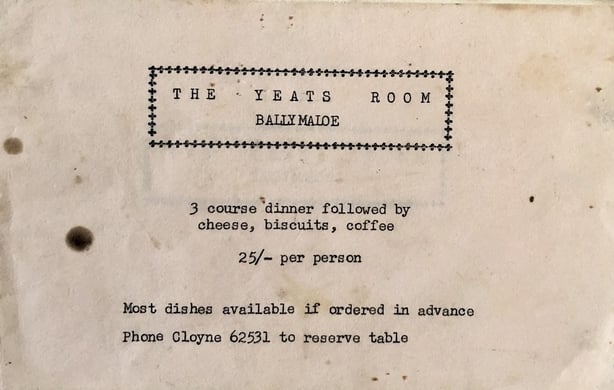
By the following week, the restaurant was featured in the The Cork Examiner's 'Mainly for Women by Maeve’ column under a headline of ‘Dining— (Country style) in an Elegant Setting’. The piece said "If you lived in a mansion-type house, part, in fact, of an old Geraldine castle, rebuilt and modernized many times through the centuries, if you loved cooking and had fruit and vegetable and poultry and cream and fresh flowers waiting to be used and fish caught fresh from the sea only a stone's throw away, if you had a swimming pool and tennis courts and delightful hinterland scenery and above all a family keen to go into the tourist trade, wouldn't you be mad not to have a shot at cashing in on the needs of the tourist or even the tired city industrialists and their wives who would find the peace of the country a pleasant change?
"These were more or less the sentiments expressed to me by Mrs. Myrtle Allen, cookery columnist in a well-known farming weekly. During the summer the grounds and dining room of her home -Ballymaloe House will be open to visitors after 7 p.m. for dinner in elegant Irish country-house style. And, after a superb home-cooked meal, the guests may wander in the grounds, play tennis or join others for a game of bridge. The family, says Mrs. Allen, have promised to co-operate not only with the catering but laying on entertainment of the kind already mentioned, before or after the meal. Mrs. Allen hopes that prospective diners will book their meals in advance so as to get the best possible service when they arrive".
And what was on the menu in the opening days? It seems that the restaurant opened on an informal basis with a dinner for family and friends, a trial run before guests were received for the first time on Wednesday and Friday of the following week. The trial run menu offered tomato soup or prawns with brown bread; chicken pilaffe [sic.]; orange mousse with chocolate wafers; cheese and biscuits and coffee.
We need your consent to load this rte-player contentWe use rte-player to manage extra content that can set cookies on your device and collect data about your activity. Please review their details and accept them to load the content.Manage Preferences
From RTÉ News, report on UCC's acquisition of Myrtle Allen's archive in 2019
The restaurant menus for the following week were more extensive and we can see the detail from UCC's Myrtle Allen Kitchen Archive papers.
Wednesday night May 13th:
Tomato Soup or Clear Soup
Steak, mushrooms
French fried onions, Chateau Potatoes
Bearnaise sauce or saute
Gooseberry flan or merangues [sic.]
Cheese and biscuits
Coffee
Friday night May 15th:
Shellfish or mushroom soup
Salmon mayonnaise
Mushroom, tomato, potato salad
Green salad
Chocolate mousse
Cheese and biscuits
Coffee
While these menus had yet to refine into Allen's defining style of cookery and of using the best quality local and seasonal ingredients, elements of that emerging approach are detectable. There's fish from Ballycotton; her own farm produce (tomatoes, salad leaves, mushrooms and dairy produce); local goods (beef from Cloyne) and undervalued at the time seasonal fruit (gooseberries). The Friday menu also recognised and accommodated the religious observance of keeping Friday as a day of abstaining from eating meat.
We need your consent to load this rte-player contentWe use rte-player to manage extra content that can set cookies on your device and collect data about your activity. Please review their details and accept them to load the content.Manage Preferences
From RTÉ Radio 1's Drivetime in 2018, the Irish food community remember Myrtle Allen, 'the founder of new Irish cuisine'
From May 1964, Allen wrote the House menus on a daily basis depending on season. It reflected the fish and shellfish landed that day at the nearby fishing village of Ballycotton, and what farm produce was to hand from the home farm or from a local community of small food producers. It must be stressed that this approach was uncharacteristic and novel and outside the style of fine dining establishments that followed and acknowledged the hegemony of classic French cookery and haute cuisine.
With time and a maturing food philosophy, Allen's menus were invested with the energy of production, with the variety of the seasons and the peculiarities of place. They were an expression of a particular cultural approach to food production and to sustainable and considered consumption patterns. Nowadays, these elements - local, seasonal, sustainable food production and consumption with a tangible and honest link to place - fill the narratives of a contemporary discourse on how we might eat better and live more meaningful lives.
In Ireland, Allen's voice was a maverick and disruptive one that was out-of-step with ambitions to embrace modernity
Allen’s work with food was an Irish expression of greater changes in outlook and perspective amongst certain socio-economic groups in the global north. Movements that questioned and promoted alternatives to mainstream food systems were forming and she represented an early and highly significant voice to that movement.
In the context of Ireland, Allen's voice was a maverick and disruptive one that was out-of-step with ambitions to embrace modernity and inclinations to leave the past behind in an Ireland of change and transition. Her insistent highlighting of quality Irish produce and her showcasing of ingredients in the space of the Yeats Room made her Ireland’s leading food activist and inspired change in food behaviours and associated value systems. Allen is an outstanding hero and icon of Ireland’s modern food culture in story, achievement, fact and tale.
Follow RTÉ Brainstorm on WhatsApp and Instagram for more stories and updates
The views expressed here are those of the author and do not represent or reflect the views of RTÉ
